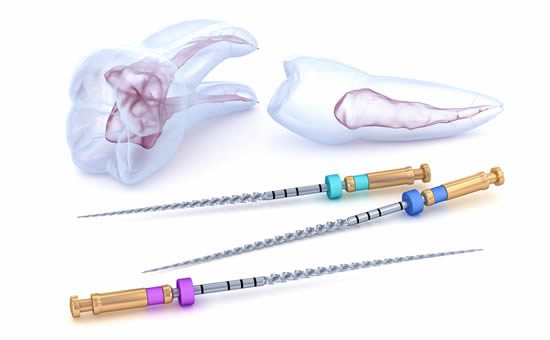ROOT CANAL TREATMENT
A root canal treatment is a procedure that cleanses of rot in the tooth root and pulp. During a root canal treatment, the infected nerve and pulp are removed. The inside of the tooth is then cleaned and sealed. Then a restoration (such as a crown or a filling) is placed to restore the anatomy and function of the tooth. So how do you know if you need root canal treatment? Here are 5 ways to see if you might need a root canal treatment.
Persistent pain
Severe pain when chewing or biting or pain in the mouth that does not go away (eg when you sleep) can be a sign of an infected or dead tooth. Any unexplained toothache should be examined for an infection as a root canal treatment may be necessary.
2. Sensitivity
Dental sensitivity is a common dental problem that is characterized by a sudden, sharp pain, which is aggravated by certain substances or temperatures, but which is temporary. However, when the sensitivity lasts for a long time after consuming hot or cold food or drinks, it may be a sign of inflamed blood vessels or nerves due to infection. Your dentist will probably recommend a root canal treatment in this case to relieve the pain.
Swollen gums
If you notice swollen gums or any swollen bump on your gums, it may be a sign of an infected tooth or an abscess. The swollen gums are typically painful to the touch and the swelling persists. Inflammation and root canal pain can be to blame for what will require treatment with a root canal.
4. Deep decay
Deep decay is the main reason why patients need a root canal treatment. When a cavity is neglected for too long and becomes large enough, it can penetrate your pulp chamber or your nerve. If bacteria enter this chamber, it causes pain and sometimes an infection. As a result, a root canal treatment is needed to save your tooth and reduce the pain.
5. A cracked or broken tooth
A cracked or broken tooth can mean that your tooth has either been infected after a trauma against it, or that there is so much caries that it has caused the tooth to crack or crack. Either way, a root canal treatment is needed to save the remaining tooth.
It is important to address root canal treatment because the infection can spread to your bloodstream and cause health problems in other parts of your body.
A root canal treatment may be necessary if for one reason or another there has been inflammation in a nerve in a tooth. It can be very painful to have inflammation in the dental nerve, and it is important to treat inflammation in a tooth if it is not to create sequelae in the mouth.
A root treatment is often required if, for example, there is a hole in a tooth and it has not been treated. Here the hole will create an inflammatory condition that requires a greater treatment. Inflammation of the tooth nerve may also occur if you have broken a tooth and it is not treated. In this way there may be inflammation in the root, so that a root treatment will be necessary.
With a root treatment we can replace the inflamed nerve with a material that fills the entire nervous channel. Once the nerve is replaced we will put a plastic filling or a crown on the tooth, so that the teeth will be strong and protected again.
It is one of the major treatments to have a root treatment, and depending on how inflamed the area is, it may be a more or less complicated treatment. It is also different how well you are able to save the inflamed tooth and vein. It depends on the roots and channels of the individual's human being. Often it is possible to remove the inflammatory state of the teeth in first treatment, but if it is not successful, it may be necessary to have a root tip surgery. A good preventive care and a quick treatment in case of caries or a broken tooth is therefore the most important thing to be aware of if you want to avoid major dental treatments and operations.
When we do root treatments, we always make sure you give a local anesthetic so it does not hurt.

